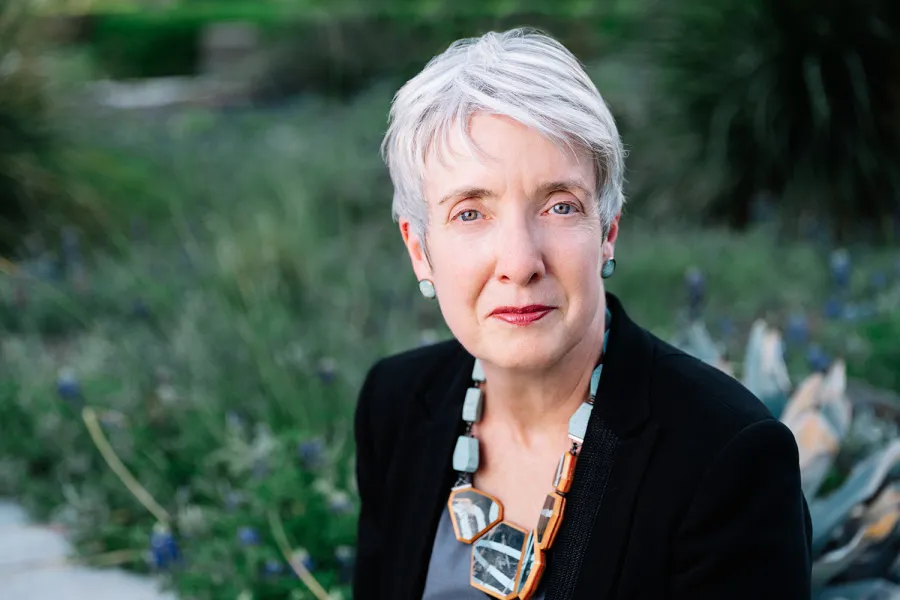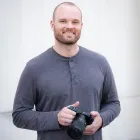January 11, 2022

An exit interview with Butler School's Beloved Outgoing Director
Last summer the Butler School of Music said goodbye to its beloved Director Mary Ellen Poole, who served in that role since June 2014. Affectionately known for her uncompromising support of students, Poole’s legacy is vast. She’ll be missed dearly by faculty, students, staff, patrons—and really anyone who had the pleasure of knowing her.
During her tenure, Poole drove the recruitment of numerous world-class faculty, maintaining the Butler School’s status as one of the most sought-after music schools in the country. She initiated anti-racist working groups following the murder of George Floyd and subsequent calls for accountability, which have already resulted in changes to the curriculum and practices surrounding recruitment and the development of a diverse student body. Poole also expanded the Butler School’s reach beyond the university through the Rainwater Innovation Grants program, which offers competitive funding opportunities for community-based student projects that aim to engage audiences through music and performance in new ways. Like Poole herself, the projects often confront issues of social justice.
We sat down with Mary Ellen for one last interview before she left for Pennsylvania, where she now serves as the Marcia Gumberg Dean of the College of Fine Arts at Carnegie Mellon University.
You served for 20 years as a musicology professor before switching to leadership roles; first as Dean of the San Francisco Conservatory of Music, then here. Why did you make the change?
I’ve always been fascinated by organizations as organisms. And early in my career I discovered that I liked being able to shape the big picture, rather than focusing on my own singular contribution, which would have been very narrow indeed.
My faculty colleagues may not appreciate this, but my dad, a high school principal, told me the day I got my first job in academic leadership, “Now you are teacher of the teachers.” It’s true, and truly humbling.
What have you learned about yourself since you started at Butler School? What have you learned about leadership?
I’ve learned that there’s very little I can’t withstand—and much that I can accomplish—as long as I concentrate stubbornly on certain fundamental human values. And there’s no dividing line between leadership and the rest of life. It’s one organic whole.
Since you began as director in 2014, you’ve been known for your unwavering support of students. Why did you make them a top priority?
Without students, universities would merely be research institutes—and don’t get me wrong, the products of research can transform society—but the creative tension between the imperative to model values and transmit knowledge, and to create new knowledge, is what gives our universities life and enduring value. I’ve also found that in times of factional division, asking the faculty and staff to focus on what’s best for the students and their development is a useful way to neutralize the effects of our professional egos, and to concentrate our collective mind.
What will you miss most about this job?
Obviously, the human beings: colleagues and students. But as I return to the world of private universities, I’ll say that I’ve slept very well for the past seven years knowing that most of our students have access to in-state tuition, one of the best deals in the country, and that Texas families with an adjusted gross income of less than $65,000 can realistically imagine sending their children to UT-Austin for free. That expanded accessibility is such an important first step.
Is there anything you thought you knew coming into this position that you later realized you knew very little about?
This is a long list, because working here has been a nonstop learning curve; I’ve never been so intellectually challenged by a job. But if I must name one thing, I thought I knew a little bit about budgets before I encountered the UT-Austin budgeting and accounting system. I will always be grateful to Tony Zapata, the Butler School’s finance manager, for his patience as MY teacher these past seven years.
Is there any particular project you initiated here that you’re most proud of?
Well, faculty hiring is the project. Who you hire, and who you retain says everything about who you are, your values, your ambitions. My biggest regret about leaving is that I won’t get to see some of our extraordinary recent arrivals bloom into their full transformative potential.
I also think that the Rainwater Innovation Grants have done more than any other initiative to turn our students into full-grown entrepreneurial humanitarians. The consistent emphasis in their project proposals on social justice and equity gives me hope for the future of music making.
What was the greatest period of sustained stress you experienced here as director? What kind of impact did it have on you and what did you take away from it?
Periods of sustained stress come and go in a job like this, and after a while you start to see patterns. For me in this role, they’ve almost always come from external pressures to go against my values, or the shared values of the Butler School. I get through them by remaining confident that I’m doing the right thing and, past a certain point, by being as detached as possible from the threat of an outcome. Helpful tactics have included getting enough exercise and reflective time, and leaning on good friends and colleagues for support. I’ve been doing this long enough to know that this kind of challenge will come around again, and that it won’t last forever, so I might as well be ready for it.
As you leave Butler School, how would you assess the state of fine arts education here at UT Austin? What are some of the most pressing issues you believe need to be addressed as new leadership comes in?
Every fine arts program in the country is at a point of articulation post-COVID, in the wake of the Black Lives Matter movement and George Floyd. We will have failed if we go back to normal. I am heartened that at this critical moment, the College of Fine Arts at UT Austin is under the guidance of Dean Ramón Rivera-Servera, a genuinely humane scholar, leader, and visionary. And again—thrilled as I am about my new opportunity at Carnegie Mellon—I’m a little melancholy that I won’t be around to see how things develop. But I have absolute confidence that he will help the Butler School find its next transformative director, so that the conversations we’ve started about our ethical responsibility to the future of music, as manifest in our beautiful students, can continue uninterrupted.
As you move on to the next chapter, what legacy do you hope to leave here?
I’d like to leave a legacy of thoughtfulness so that students, faculty, and staff will not automatically default to old assumptions about what music schools should be and do, so that going forward, they’ll hold all their leaders to a high standard of critical interrogation of those old practices and repertories.


